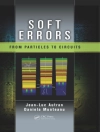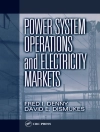Identifying, assessing, and mitigating electric power grid vulnerabilities is a growing focus in short-term operational planning of power systems. Through illustrated application, this important guide surveys state-of-the-art methodologies for the assessment and enhancement of power system security in short term operational planning and real-time operation. The methodologies employ advanced methods from probabilistic theory, data mining, artificial intelligence, and optimization, to provide knowledge-based support for monitoring, control (preventive and corrective), and decision making tasks.
Key features:
* Introduces behavioural recognition in wide-area monitoring and security constrained optimal power flow for intelligent control and protection and optimal grid management.
* Provides in-depth understanding of risk-based reliability and security assessment, dynamic vulnerability assessment methods, supported by the underpinning mathematics.
* Develops expertise in mitigation techniques using intelligent protection and control, controlled islanding, model predictive control, multi-agent and distributed control systems
* Illustrates implementation in smart grid and self-healing applications with examples and real-world experience from the WAMPAC (Wide Area Monitoring Protection and Control) scheme.
Dynamic Vulnerability Assessment and Intelligent Control for Power Systems is a valuable reference for postgraduate students and researchers in power system stability as well as practicing engineers working in power system dynamics, control, and network operation and planning.
Over de auteur
Edited by
José Luis Rueda-Torres received the Electrical Engineer Diploma from Escuela Politécnica Nacional, Quito, Ecuador, cum laude honors, in August 2004. In November 2009, he received a Ph.D. in electrical engineering from the National University of San Juan, obtaining the highest mark ‘Sobresaliente’ (Outstanding). He is currently working as an Assistant Professor for Intelligent Electrical Power Grids at the Department of Electrical Sustainable Energy, Technical University Delft, Netherlands. He is vice-chair of the Working Group on Modern Heuristic Optimization (WGMHO) under the IEEE PES Power System Analysis, Computing, and Economics Committee. Dr. Rueda-Torres is a member of CIGRE and a senior member of the IEEE. His current research interests include power system planning, power system stability and control, and probabilistic and artificial intelligence methods.
Francisco González-Longatt received an Electrical Engineering degree from Instituto Universitario Politécnico de la Fuerza Armada Nacional (1994), Master of Business Administration from Universidad Bicentenaria de Aragua (1999), a Ph.D. in Electrical Power Engineering from the Universidad Central de Venezuela (2008), and a Postgraduate Certificate in Higher Education Professional Practice from Coventry University (2013). He is a Lecturer in Electrical Power Systems in the School of Electronic, Electrical and Systems Engineering at Loughborough University, UK, and the Vice-President of the Venezuelan Wind Energy Association. Dr González-Longatt is a member of CIGRE and a senior member of the IEEE. His current research interests include innovative (operation/control) schemes to optimize the performance of future energy systems.












